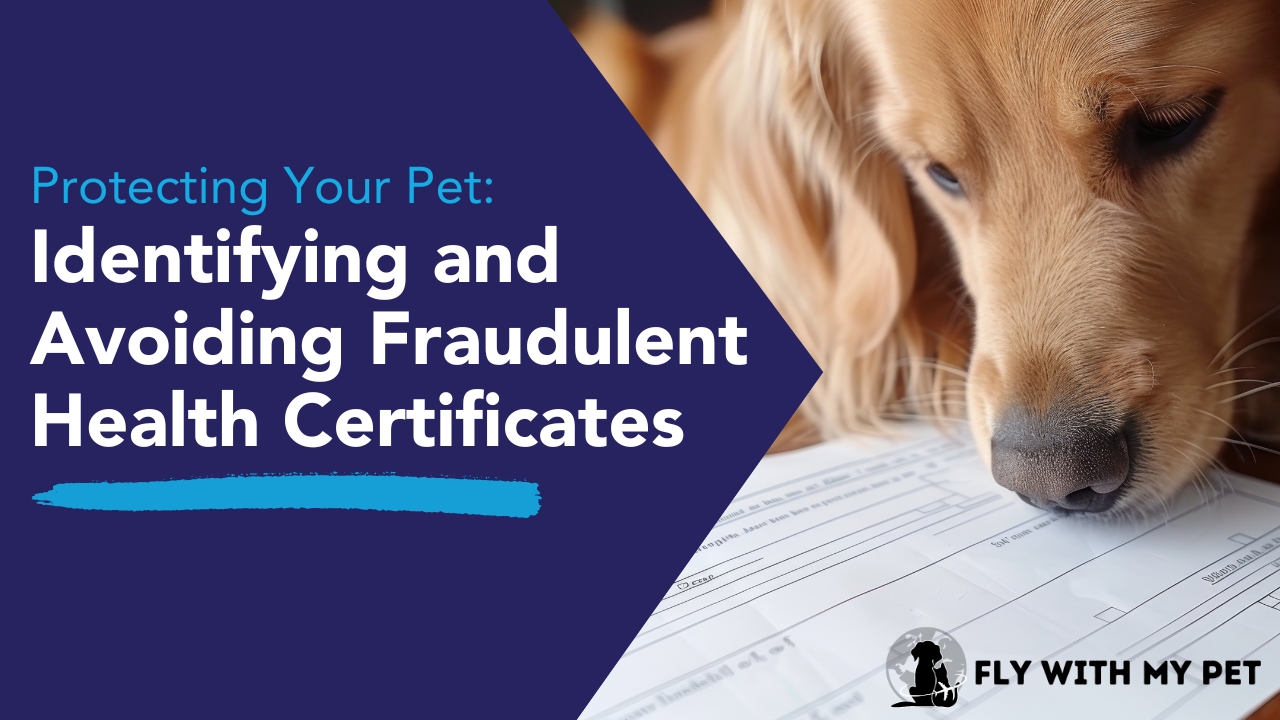
As pet travel becomes more common, fraudulent animal health certificates are on the rise. These documents, intended to confirm that a pet is healthy and vaccinated, are being counterfeited, posing risks to pets, owners, and public health.
Why Are Fraudulent Certificates Becoming More Common?
Several factors contribute to the increase in fake health certificates:
- Rising Pet Travel: With more people traveling with their pets, the demand for health certificates has skyrocketed, creating opportunities for fraud.
- Online Access: The internet makes it easy to obtain fake documents, with websites and social media platforms facilitating their sale.
- Regulatory Gaps: Inconsistent regulations and enforcement across regions allow fake documents to slip through.
- Convenience and Cost: Obtaining legitimate health certificates can be time-consuming and costly, tempting some pet owners to take shortcuts.
The Impact on Pet Owners
The consequences of using fraudulent health certificates can be severe:
- Pet Health Risks: Pets with fake health certificates may not receive necessary vaccinations or health checks, putting them at risk of serious illnesses.
- Human Health Risks: Unvaccinated pets increase the risk of zoonotic diseases, which can spread from animals to humans.
- Legal Consequences: Pet owners who travel with or purchase animals with fake health certificates may face fines, legal issues, and quarantine measures.
- Veterinary Trust Issues: Fraudulent documents undermine the integrity of veterinary professionals, potentially leading to legal complications for veterinarians.
How to Protect Your Pet and Yourself
Addressing the issue of fraudulent animal health certificates requires a multi-faceted approach, and pet owners play a crucial role in this effort:
- Verify Health Certificates: Always ensure that the health certificates you receive are legitimate. Ask for details such as the veterinarian’s name and contact information, and verify them independently.
- Use Trusted Veterinarians: Always obtain health certificates from reputable veterinarians. Avoid using services that promise quick or cheap certificates without proper examinations.
- Check for Red Flags: Be vigilant about the following when reviewing a health certificate:
- Font and Colors: Ensure the font, size, and color of the text are consistent throughout the document.
- Veterinarian’s Information: Verify the accuracy of the veterinarian’s name and address information.
- Inconsistencies: Watch for discrepancies such as a health certificate for a dog with vaccination details for a cat, animal information that doesn’t match photos (if provided), or brand and manufacturer info that seems unfamiliar.
- Certificate Number: Each health certificate should have a unique certificate number, usually located in the top corner of the first page.
- USDA Endorsement Stamp: For International Health Certificates, the USDA Endorsement Stamp should be present and can be used to verify the certificate’s validity.
- Educate Yourself: Understanding the risks associated with fraudulent health certificates is crucial. Stay informed about the latest developments and recommendations from veterinary authorities.
- Report Suspicious Activity: If you suspect that a health certificate is fraudulent, report it to your veterinarian or relevant authorities. Taking action can help prevent the spread of this issue.
The rise of fraudulent animal health certificates is a growing problem that requires immediate attention. Pet owners must be vigilant and informed to protect the health and well-being of their pets and the public. By verifying health certificates, using trusted veterinarians, recognizing red flags, understanding the risks, and reporting suspicions, pet owners can help combat this dangerous trend. GlobalVetLink is committed to helping put an end to fraudulent animal health documentation. Our SmartCert Technology is designed to revolutionize how veterinary clinics handle animal health compliance documents adding an extra level of peace of mind for animal owners. For your next health certificate, ask your veterinarian for a GlobalVetLink Health Certificate with SmartCert Technology.
